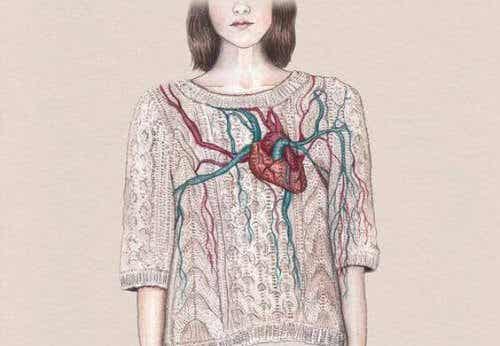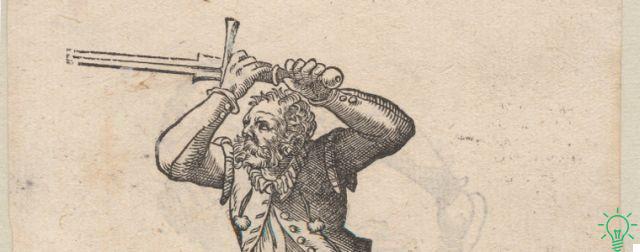
Last update: 14 September, 2019
Advertising campaigns continually show us the risks to our health due to the lifestyle we adopt. Overweight, sedentary lifestyle, poor eating habits, alcohol and tobacco consumption, high cholesterol levels ... All risk factors for the development of various diseases, such as cardiovascular ones.
We know perfectly well that we must eat healthy food, practice moderate physical activity and quit smoking and alcohol to avoid these problems. But all the factors listed above leave out a very important aspect. We also need to take into account a number of psychological and social factors. Here are what they are!
Negative emotions: the influence of anger on heart problems
Anger, anxiety and depression have been shown to influence the onset of cardiovascular disease. As for anger, we must distinguish between the internal one (that is, what we feel, but repress), the external one (when we react aggressively due to this emotion) and the control of the same (when we manage it effectively) .
Inner anger presupposes a risk factor both in the beginning and in the development of heart disease. This happens because, by repressing ourselves, we do not live it. In fact, such repression often causes an accentuation of the emotional malaise.
Avoiding expressing our anger can be as risky for us as expressing it out of control. The best thing is to do it without attacking our interlocutor. One way to do this is to use assertiveness techniques.
External anger is also related to these diseases, but it also has positive aspects. It can be a protective factor against myocardial infarction and stroke. As for the management of anger, having little ability to control anger worsens the state of cardiovascular disease of those who suffer from it.
Anxiety and sadness: emotional malaise and heart health
Emotional distress usually appears after a diagnosis of this type of disease. The normal thing is that it is more intense in the beginning and that it decreases as the person adapts to the lifestyle changes to be undertaken. The emotions that are most often felt in these situations are anxiety and sadness.
As for anxiety, it has been found that high levels of this emotion after a myocardial infarction multiply the chances of suffering complications by five. For this reason, it is very important to acquire strategies to effectively manage anxiety states.
As for sadness, when it becomes pathological, causing depressive symptoms or real depression, it can affect the onset of heart disease. It also makes the treatment less effective. It is inevitable to feel sad when you discover that you are suffering from such a disease. However, we must fight so that sadness does not take over us.
How we handle stress directly affects our heart
People deal with stress and the situations that cause it differently. Some ways are more helpful than others and help make us feel better or worse. We generally resort to some strategies to try to solve the problem caused by the malaise and / or try to manage the feelings that stress causes us in an alternative way.
Chronic diseases, like some of those that affect the heart, are significant sources of stress. For this reason, several studies have focused on the best and worst ways to manage that emotion. As a result, trying to avoid or neglect (both mentally and behaviorally) the difficulties that arise from heart problems, we will experience greater psychological discomfort. This will negatively affect our well-being and, therefore, lead to a deterioration in physical health.
Conversely, focusing on solving the problem and accepting the aspects that cannot be changed improves the way we experience the disease, as we experience fewer depressive symptoms. The strategies we use to deal with the disease, therefore, can make a difference in the course of it.
Social support is crucial for heart health
Social support is a fundamental tool for our general psychological well-being. On the one hand, it reduces the negative influence of stress. On the other hand, it favors the acquisition of healthy habits of life and makes the treatment more effective. In addition, it helps to make us able to cope with the disease.
In this sense, the perception that the patient has of the social support available to him is very important. Medium- and long-term suffering from heart disease has been related to low perception of social support in people who were initially healthy.
Within the group of people who had already been diagnosed with heart disease, the prognosis is worse in those with reduced social support. Such patients present greater psychological distress, greater cardiac symptoms, less vital satisfaction, higher mortality rates and less adaptive ways of coping with the disease (relevant aspect, as we have already seen).
The importance of social support for our physical and mental well-being is significant. For this reason, it is necessary to enjoy a good circle of people who support us, especially when suffering from heart problems. Furthermore, it is good to be aware of the importance of such help.
For all these reasons, it is important to take care of your heart with healthy lifestyle habits, eating healthily and playing sports. In this process, however, we must not neglect our mental and social health. Have you seen how these aspects can protect us from disease and even improve its course… Take care of yourself!


























